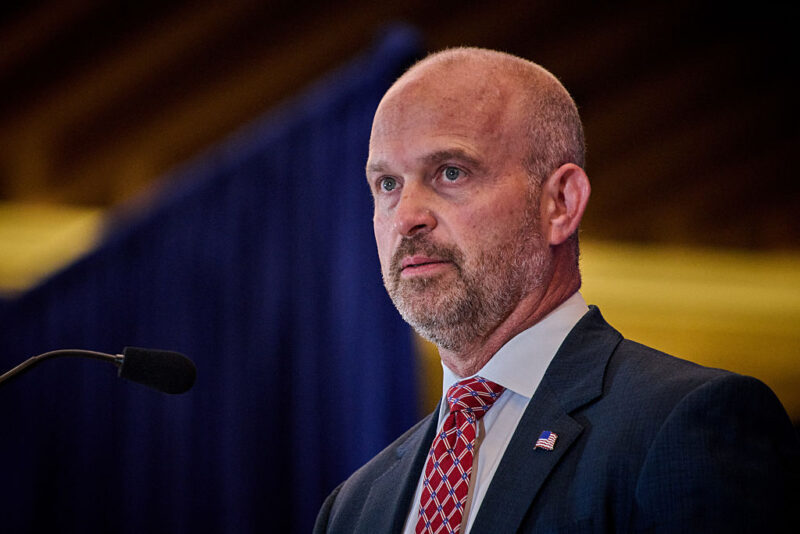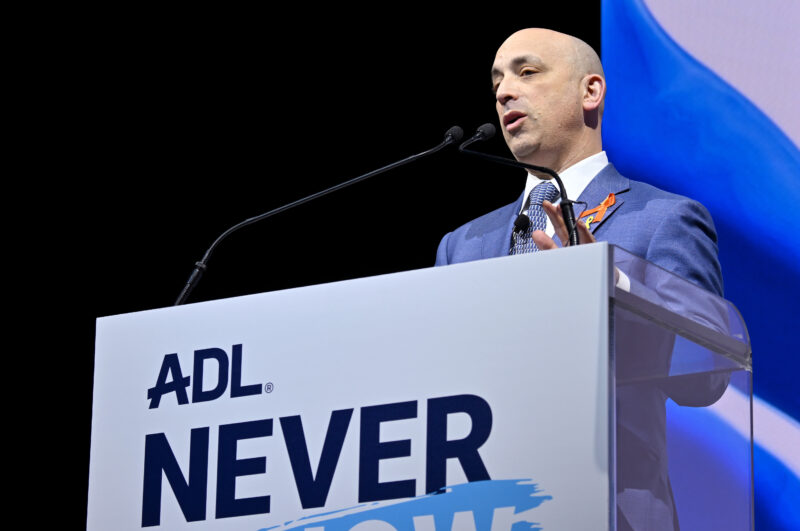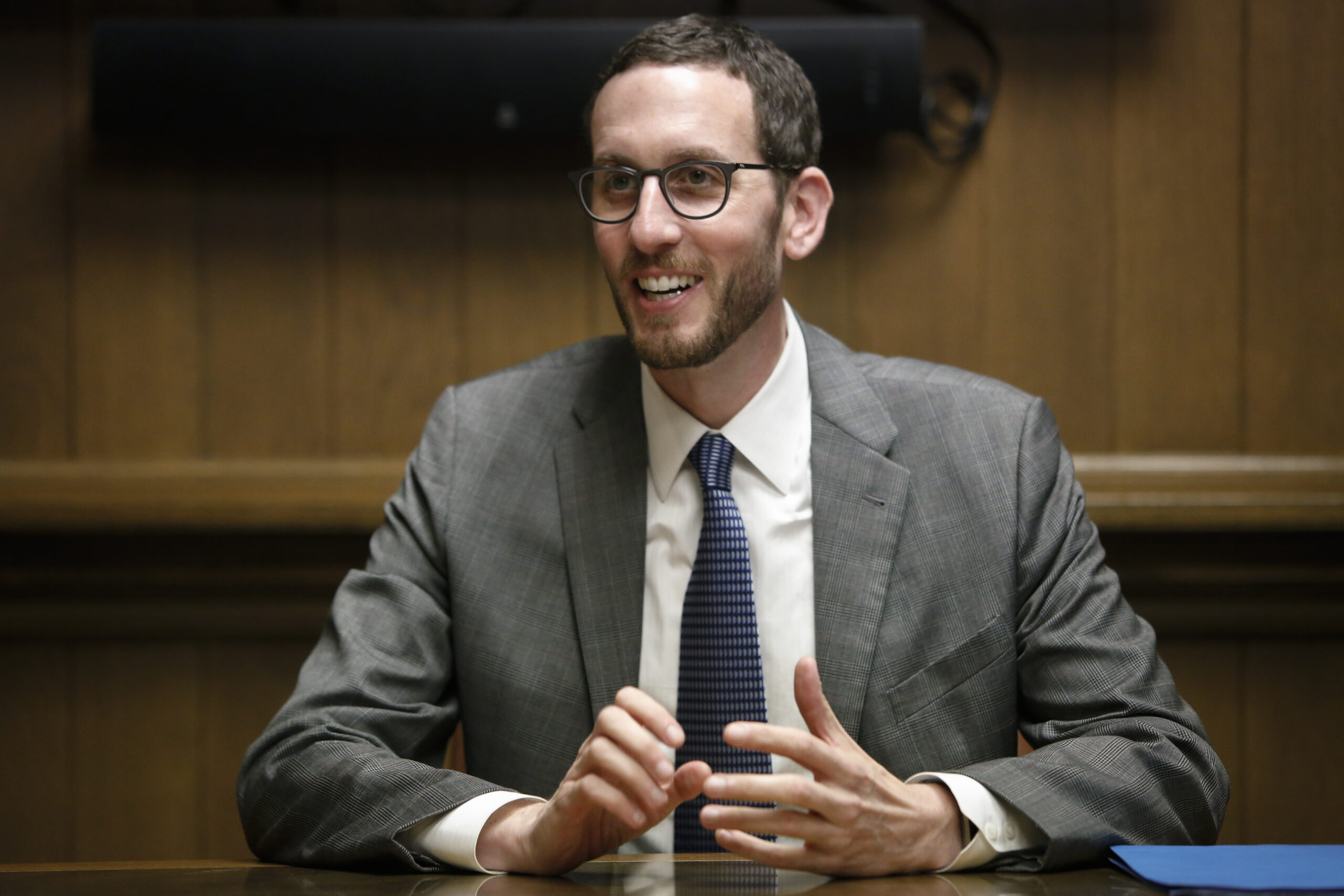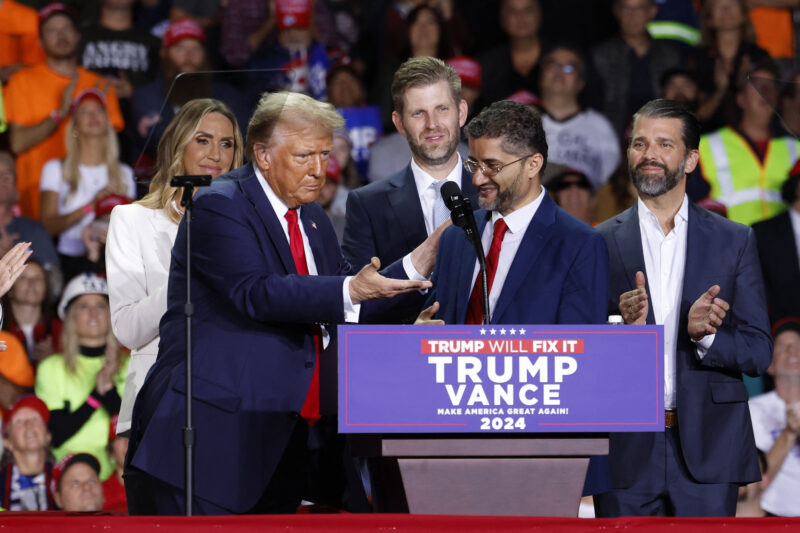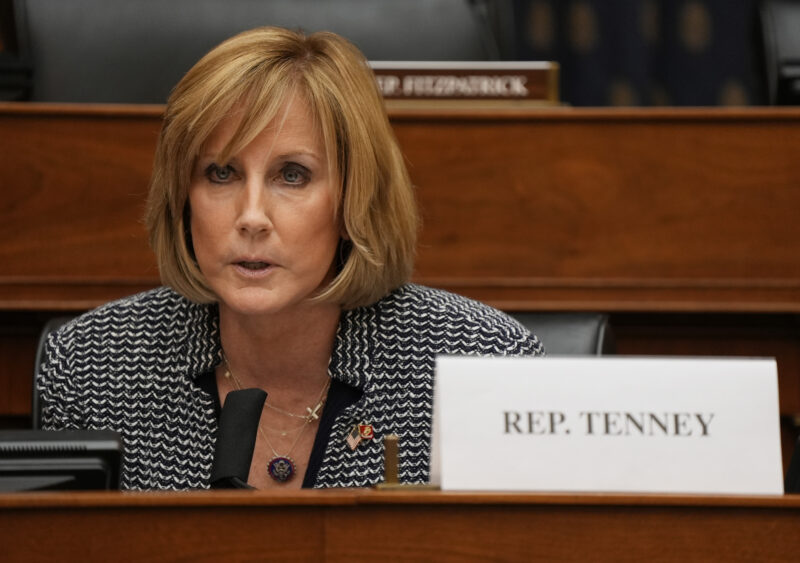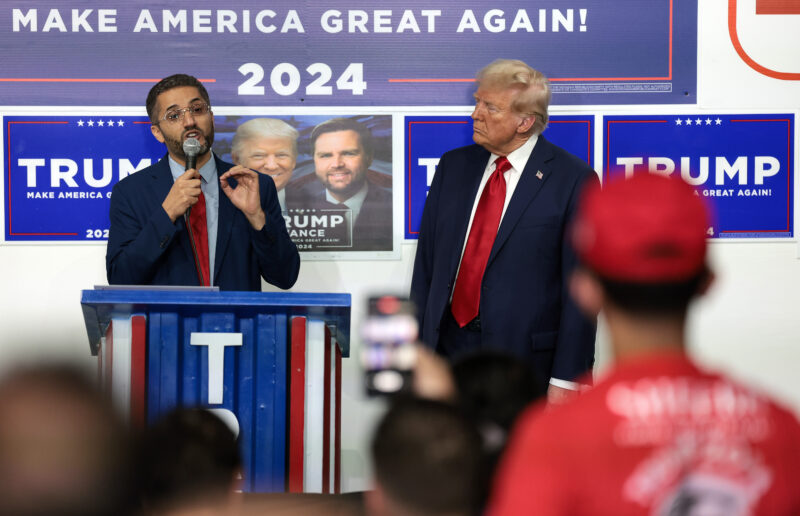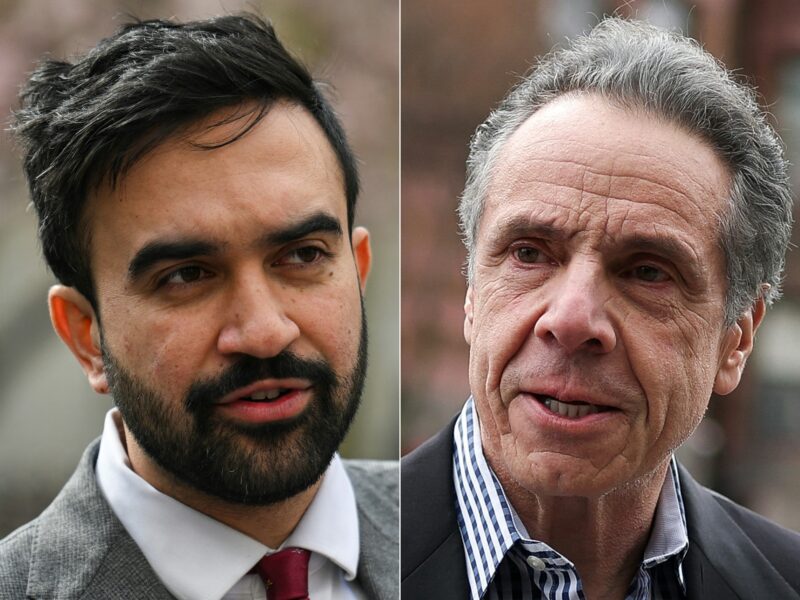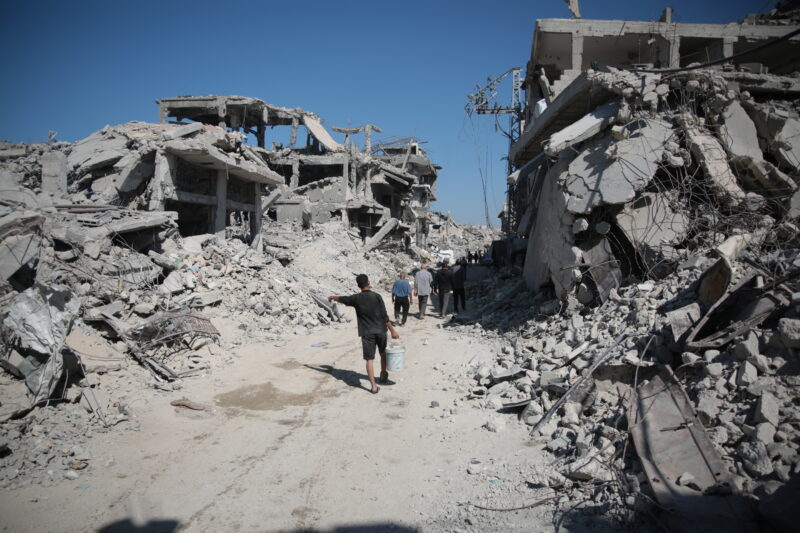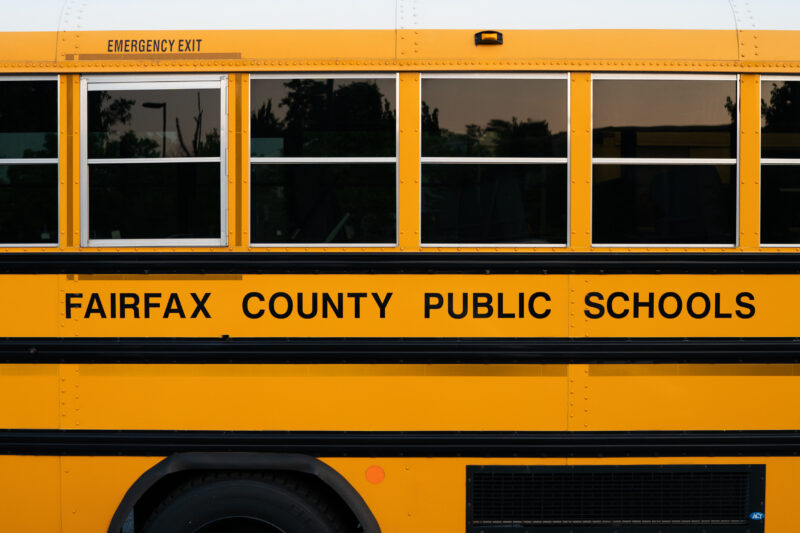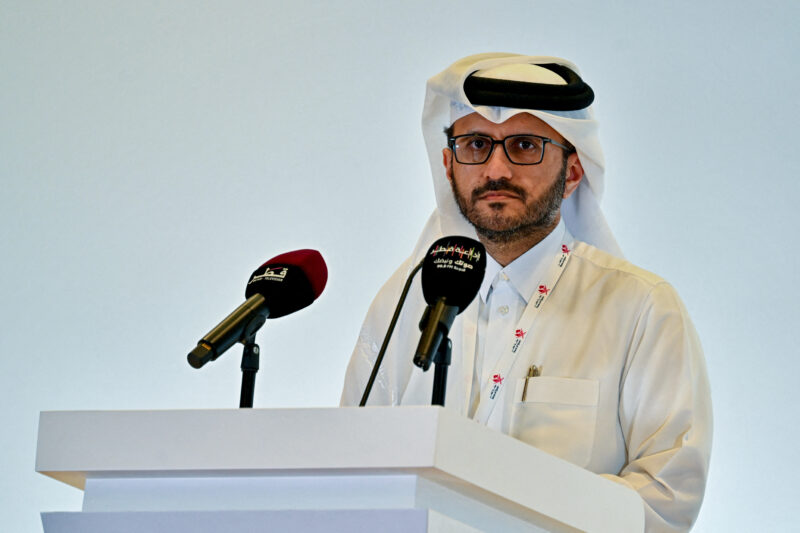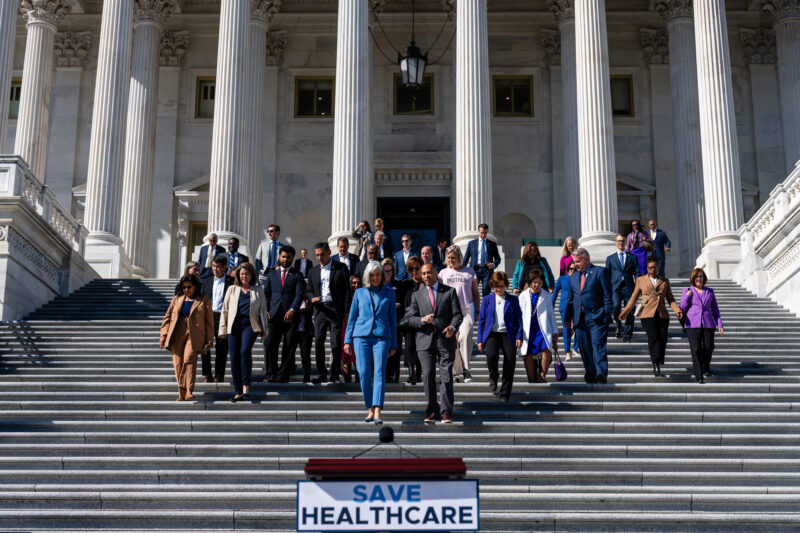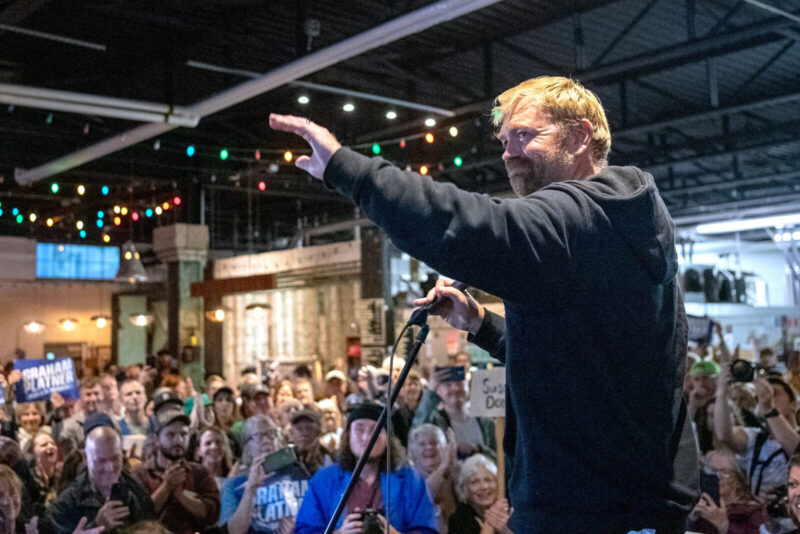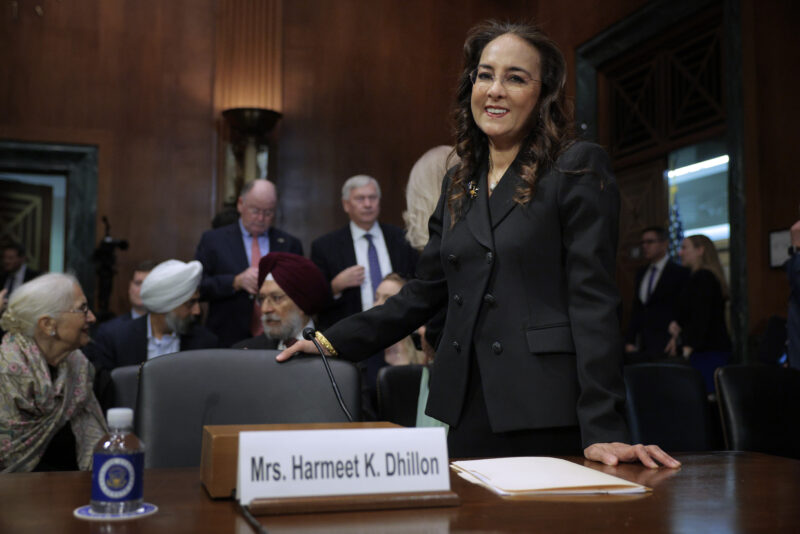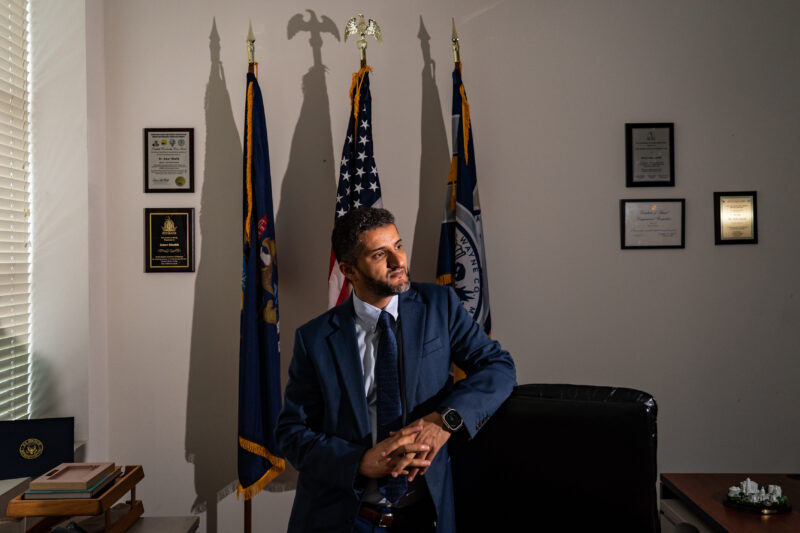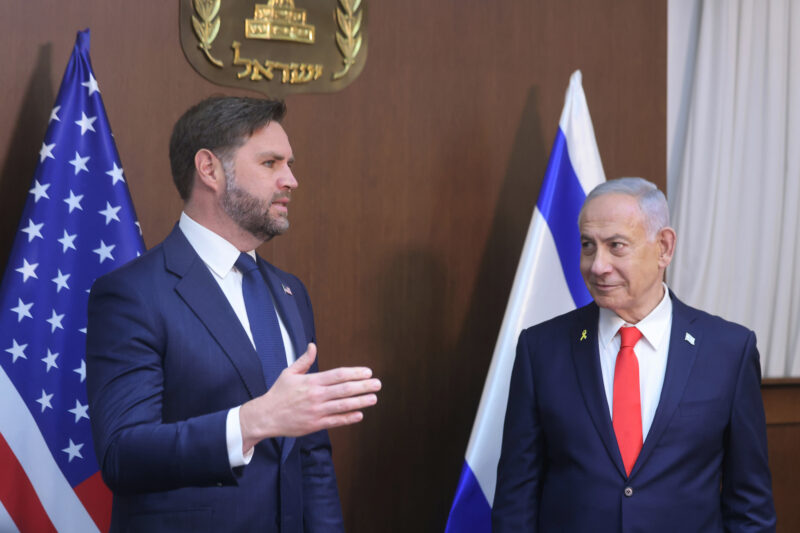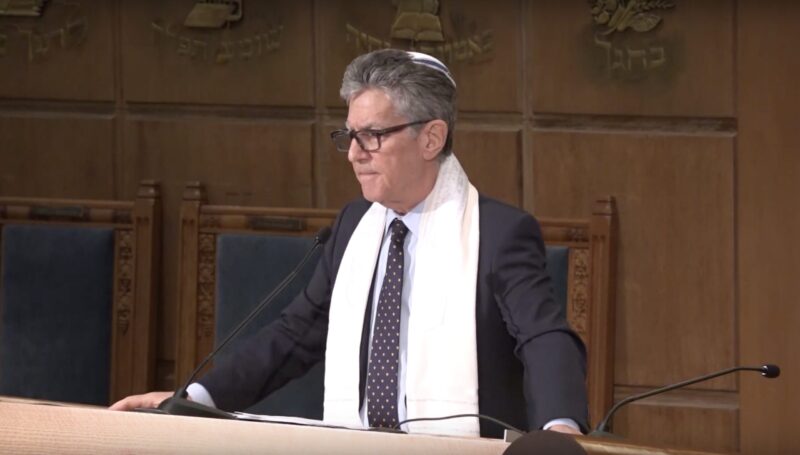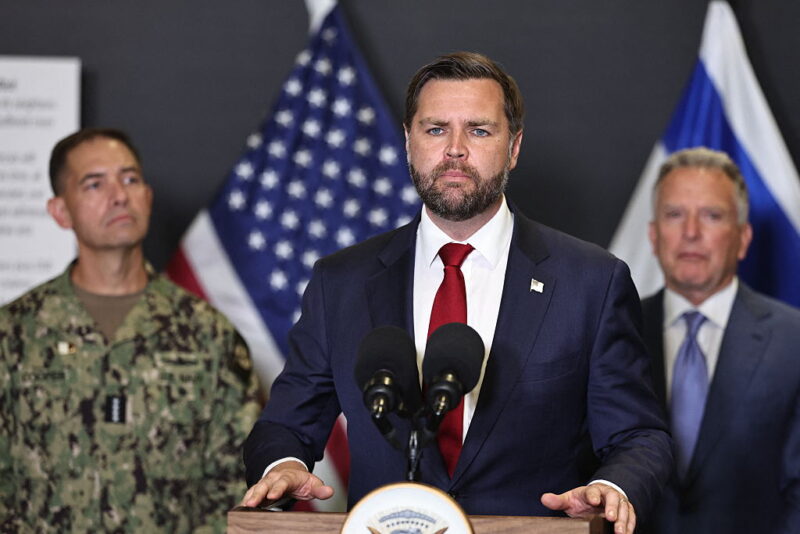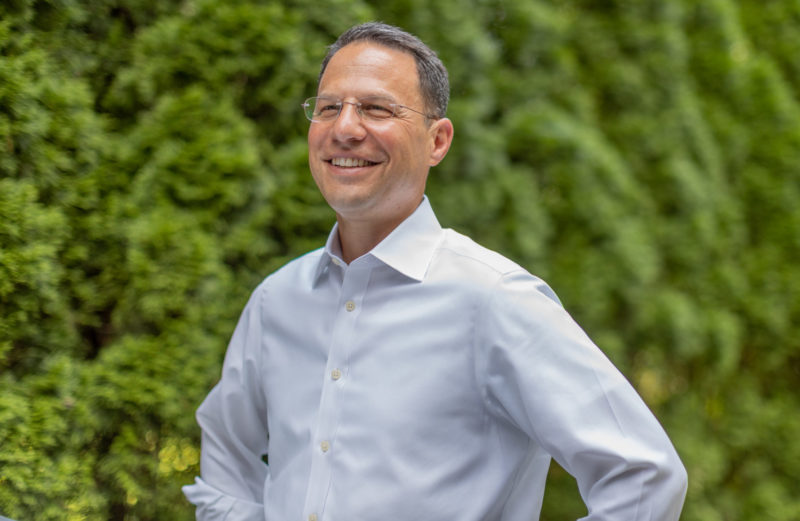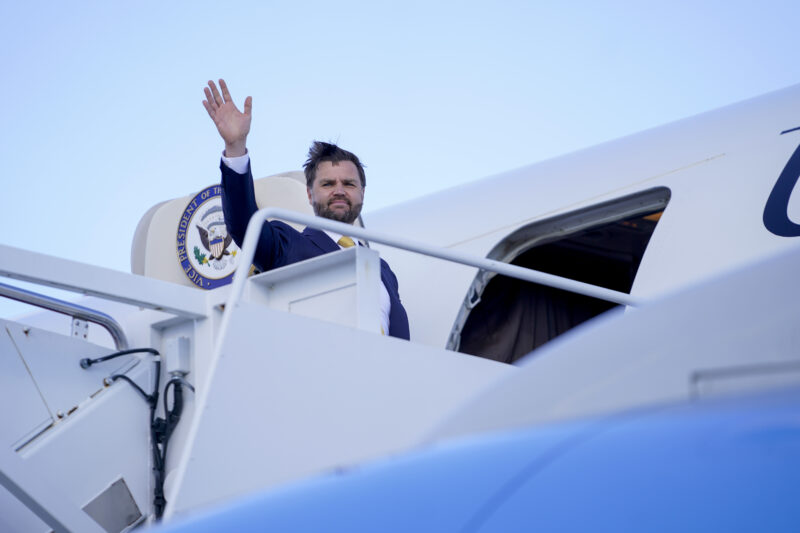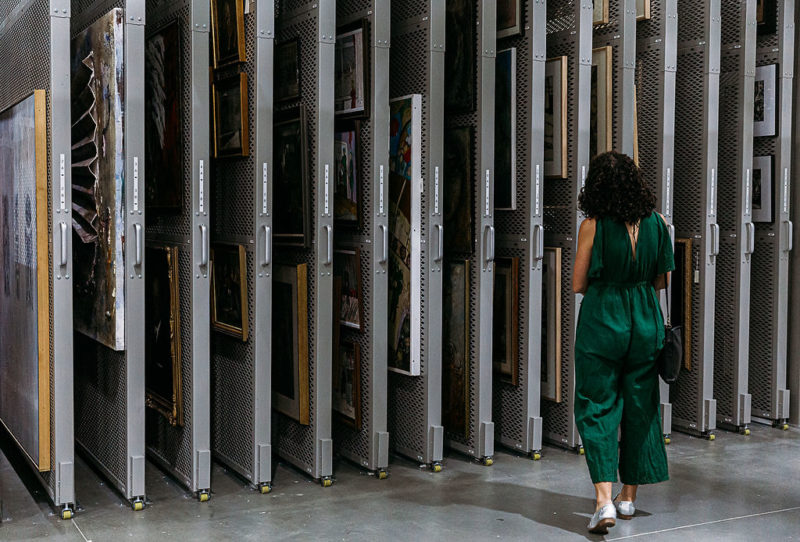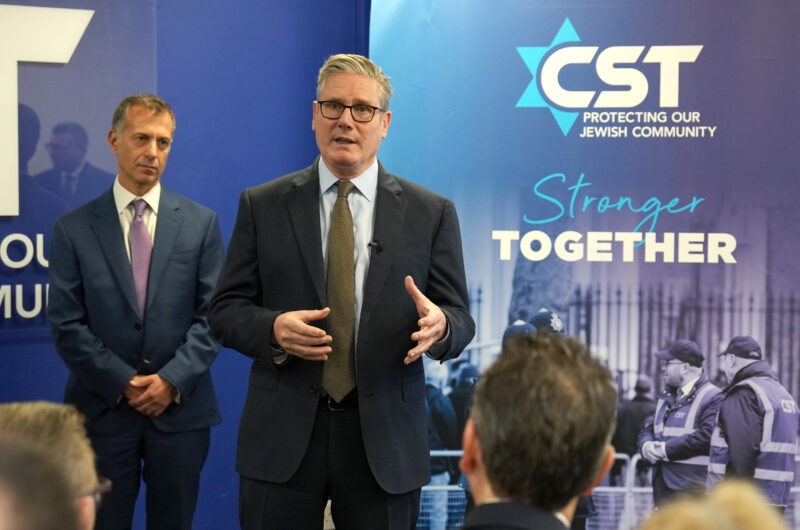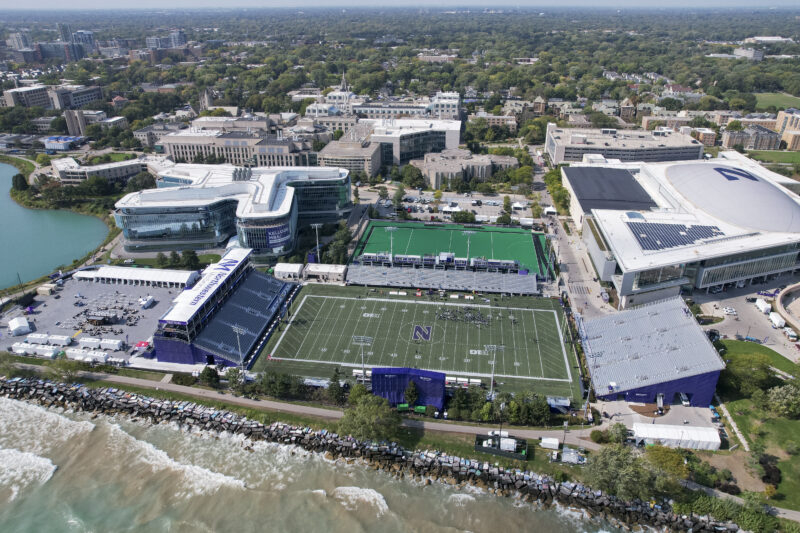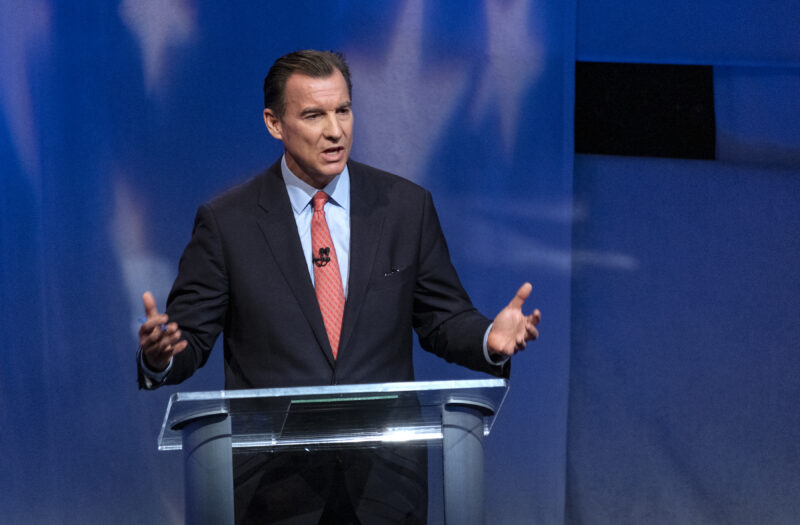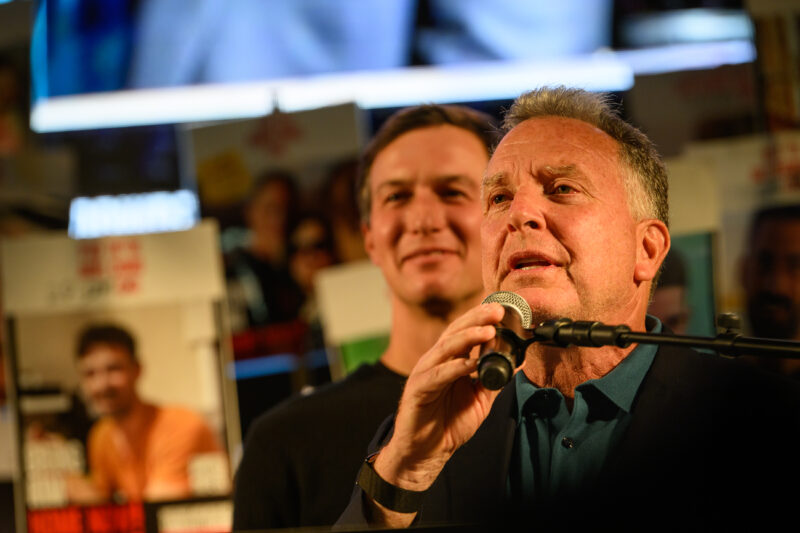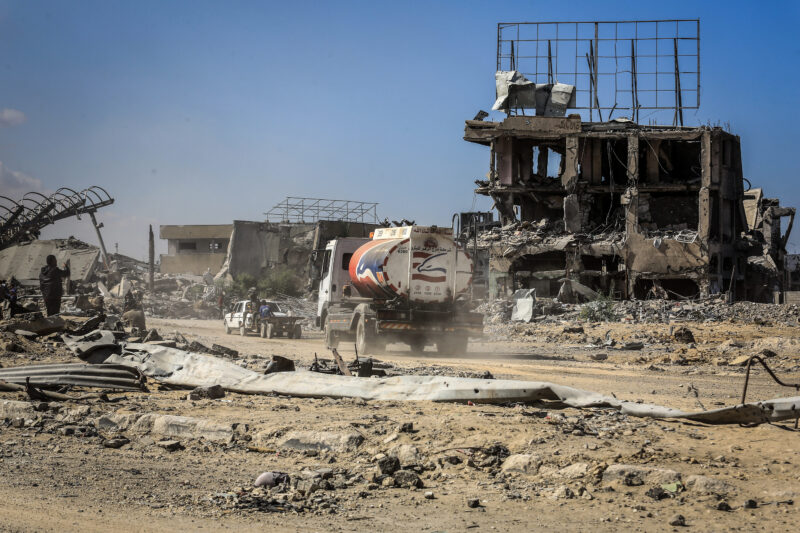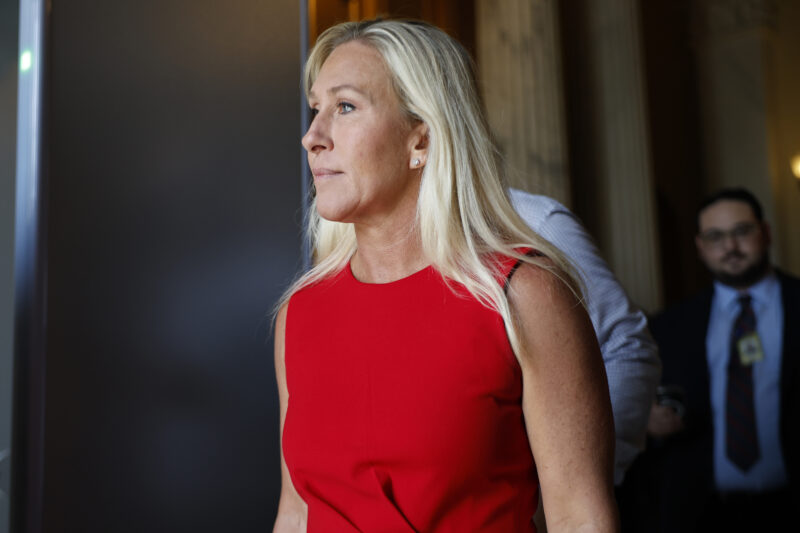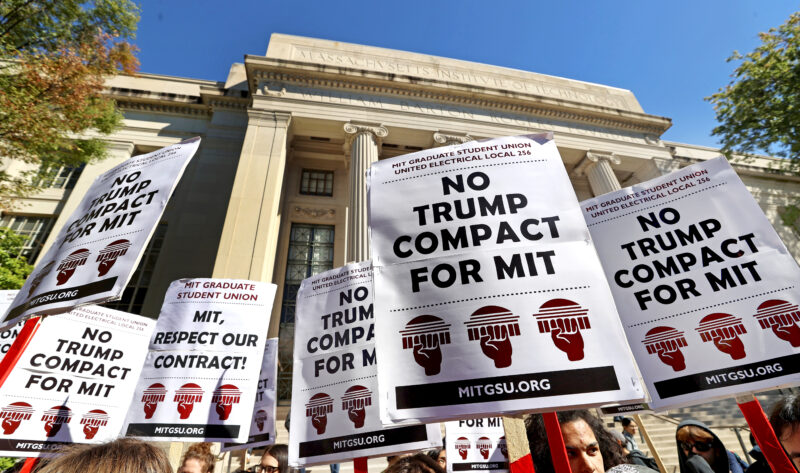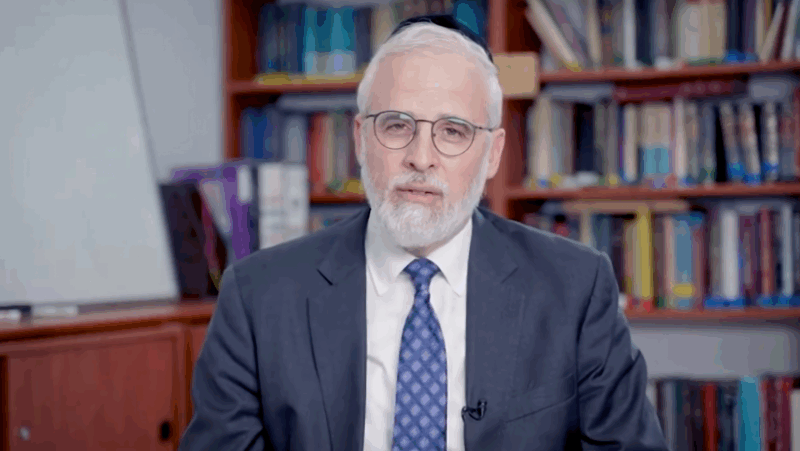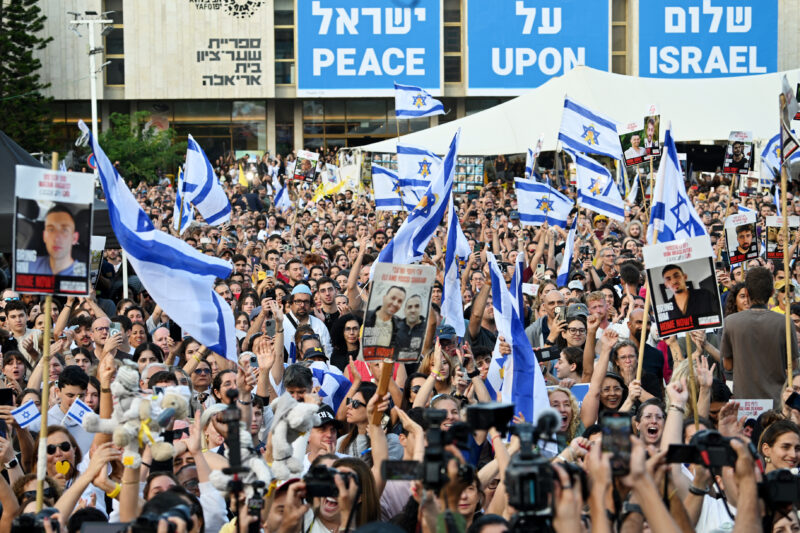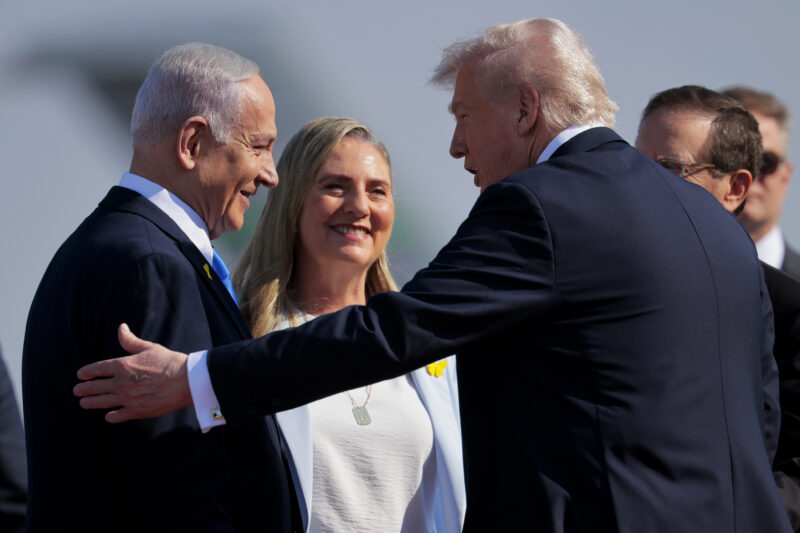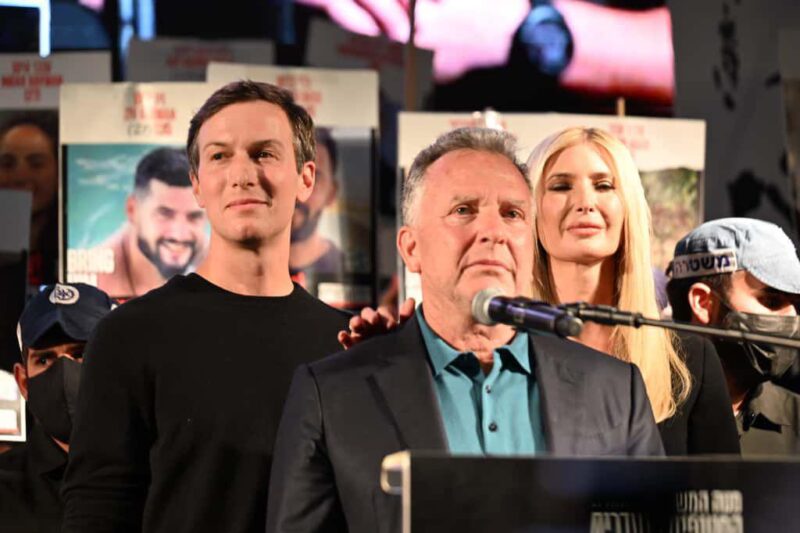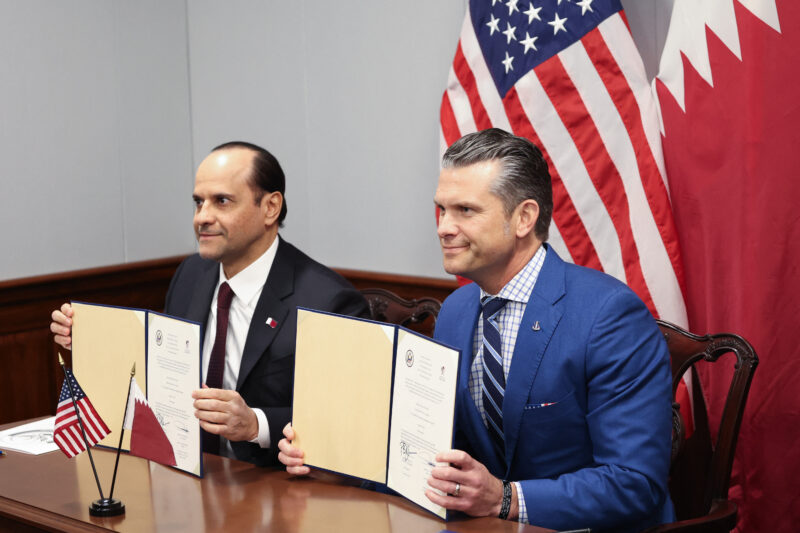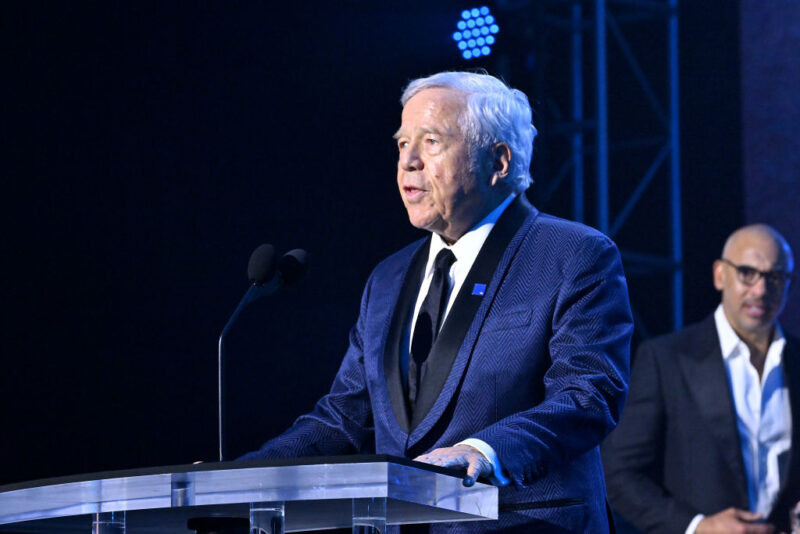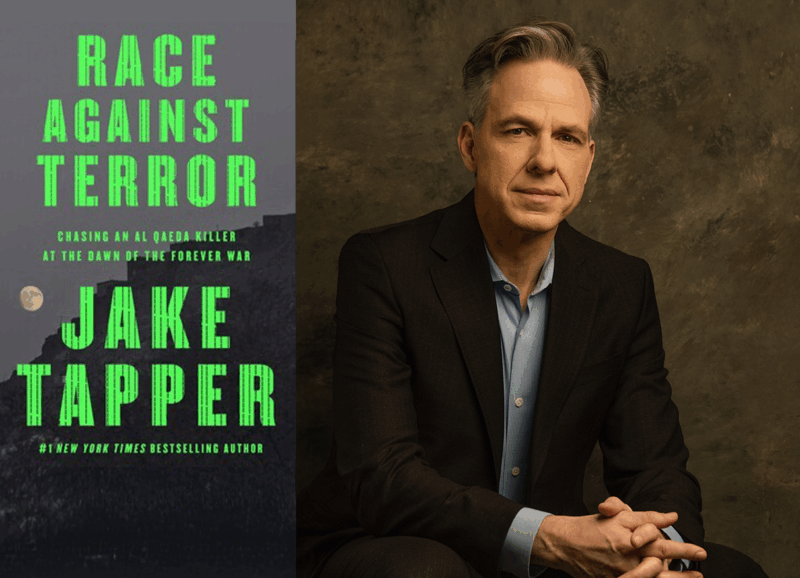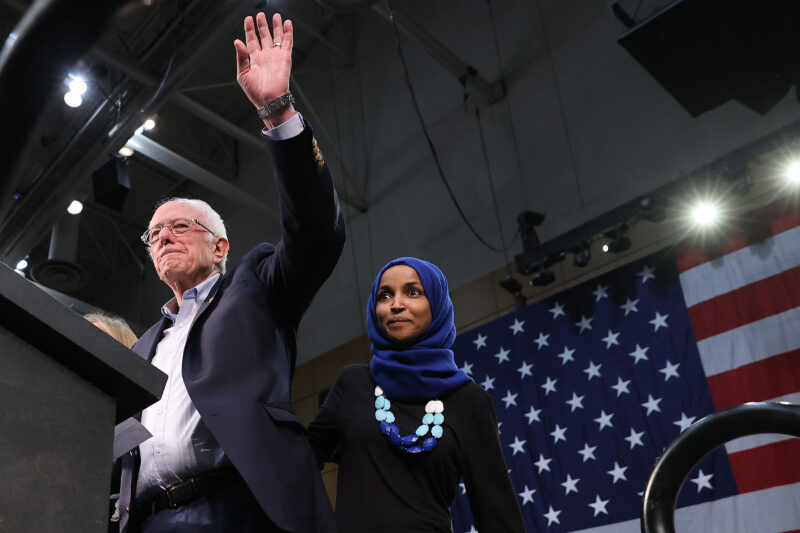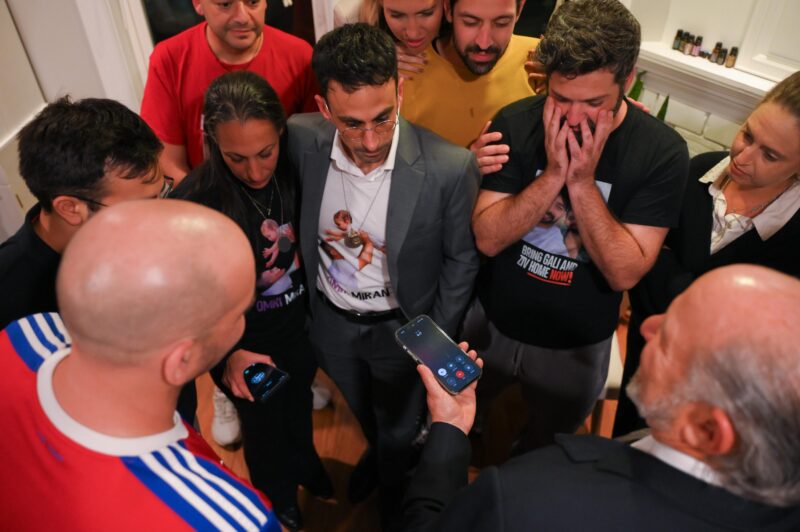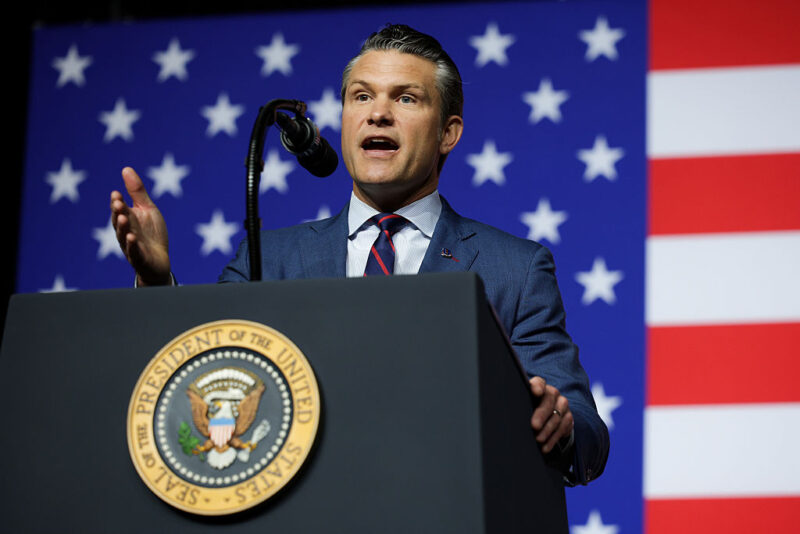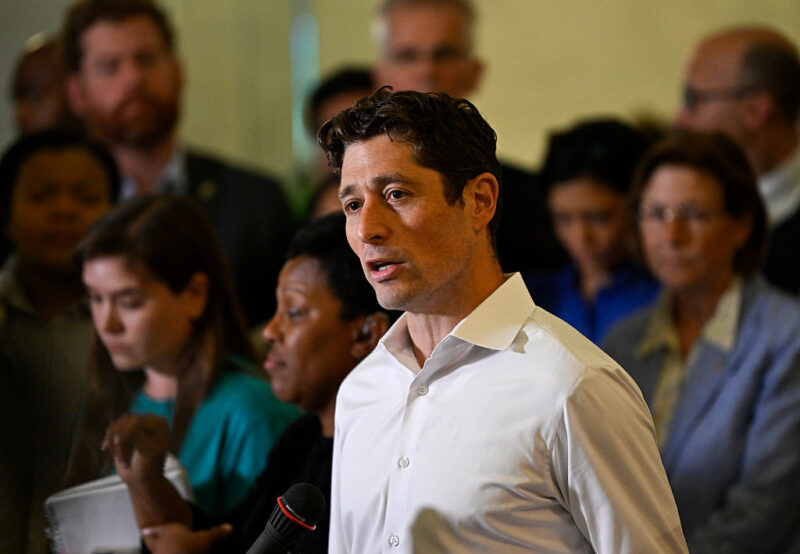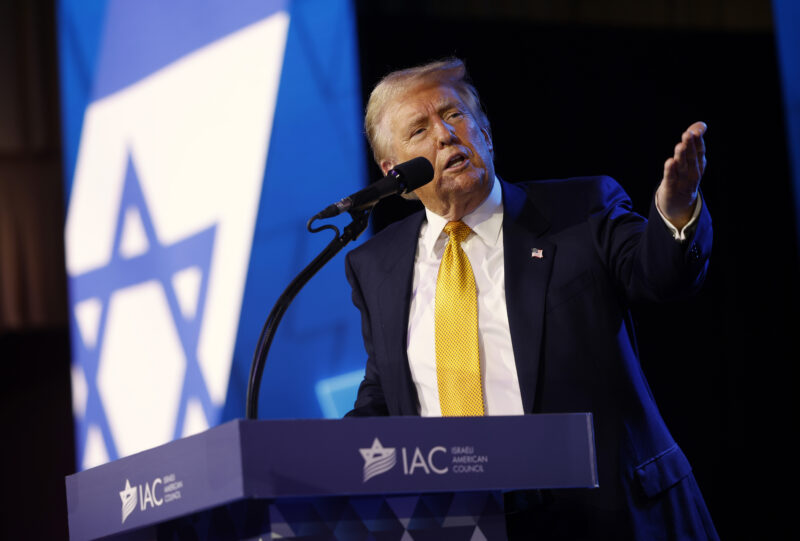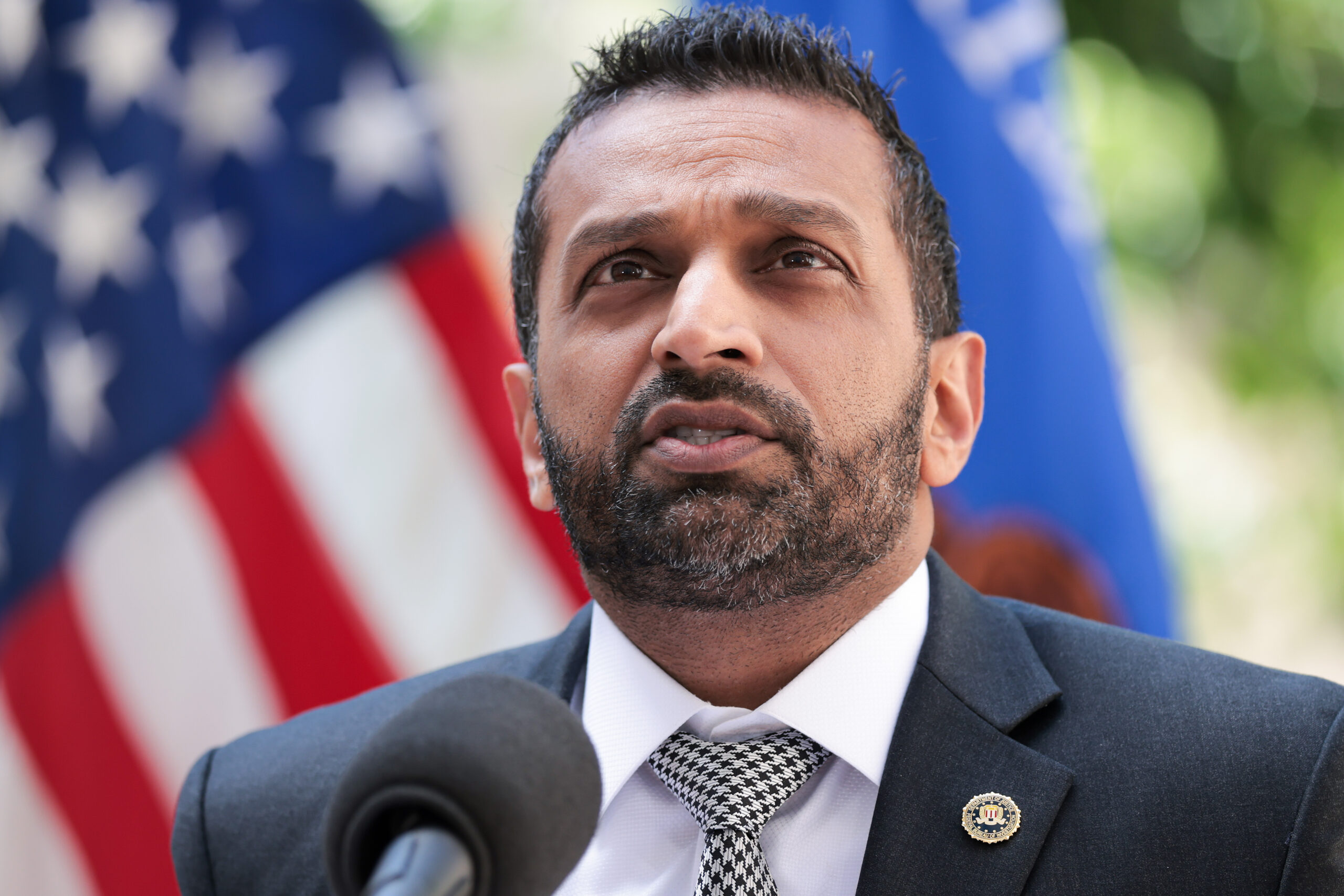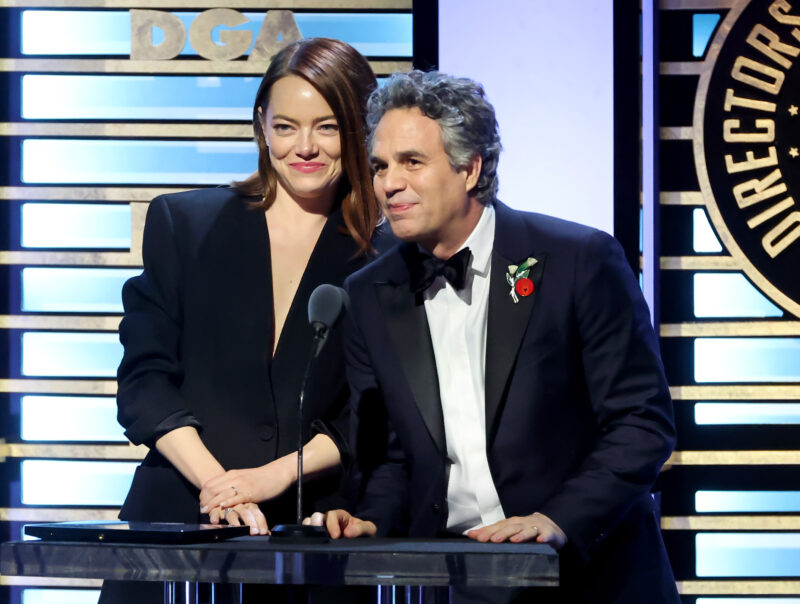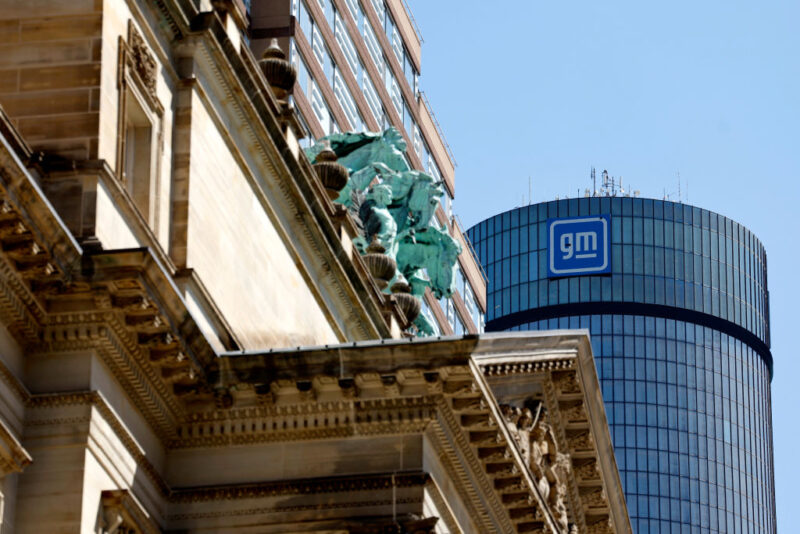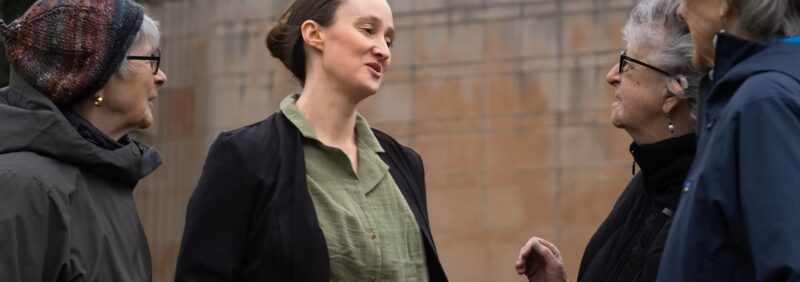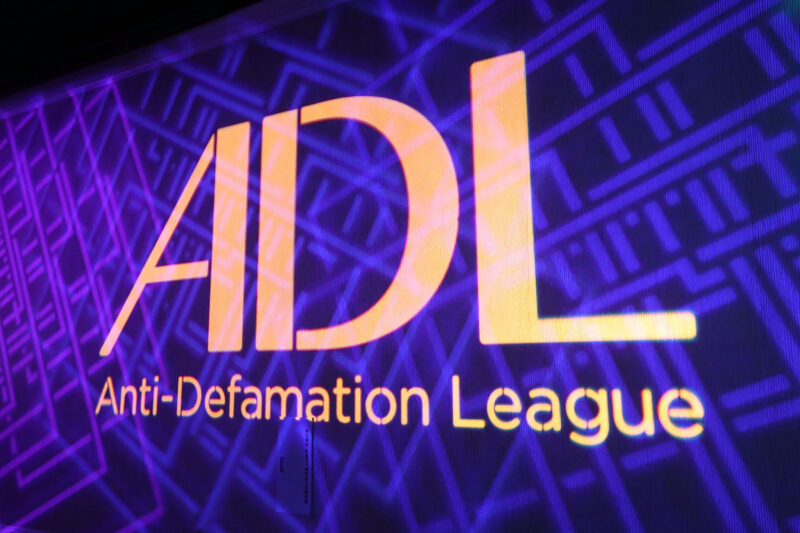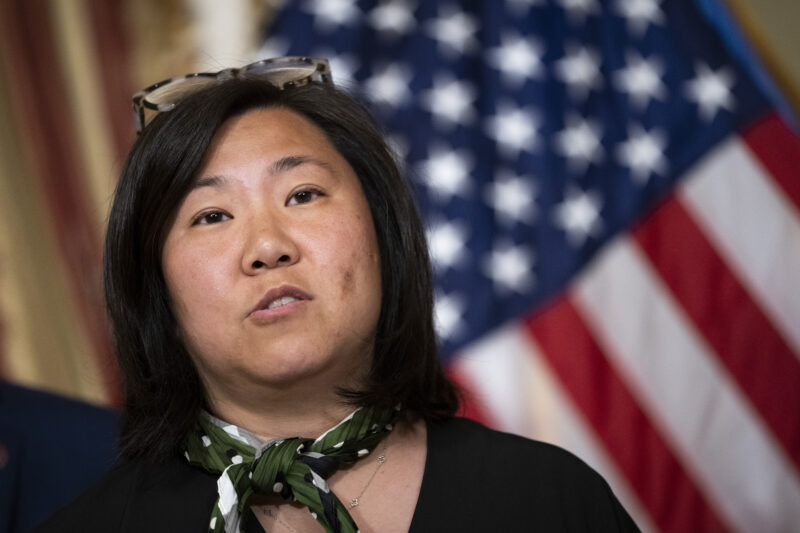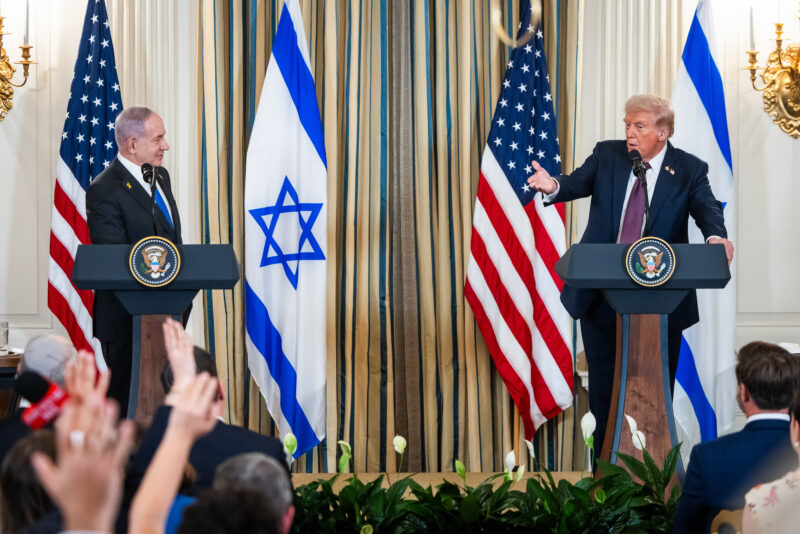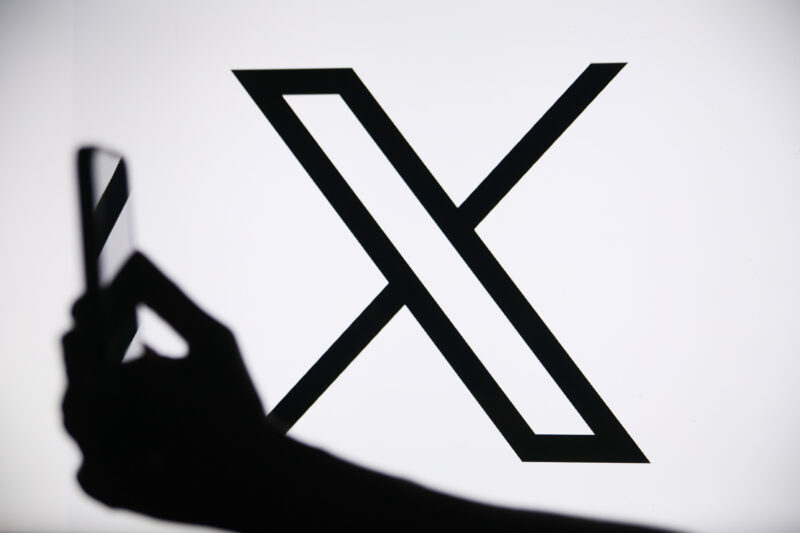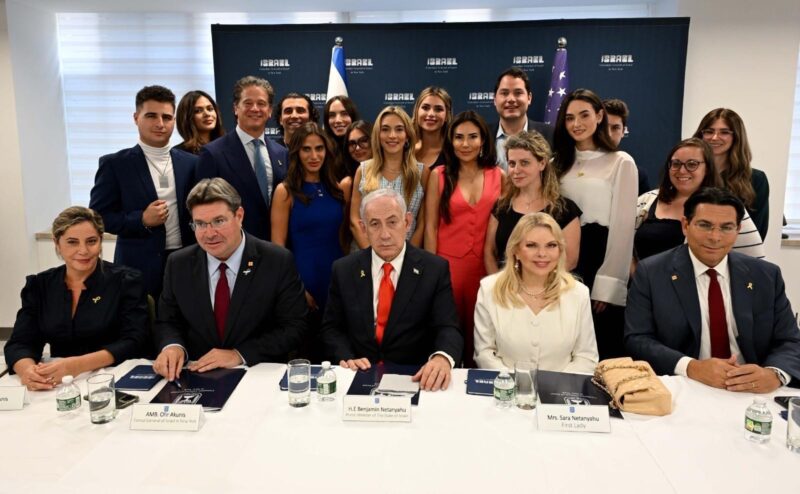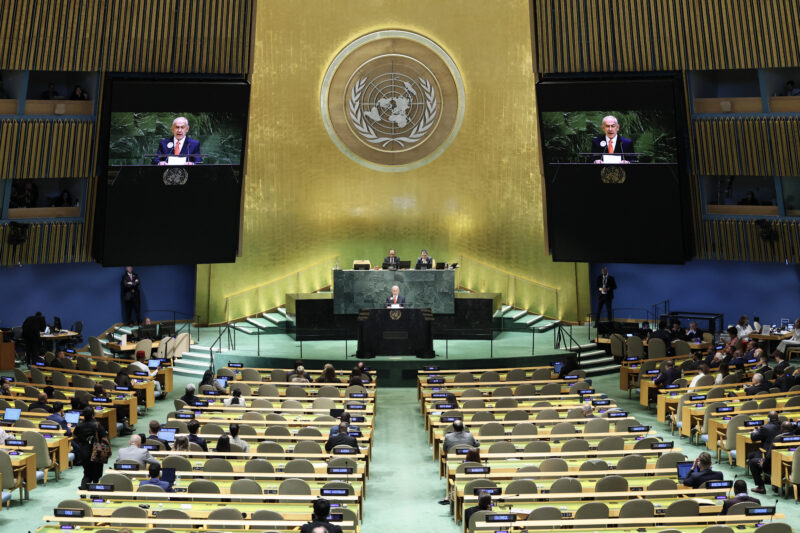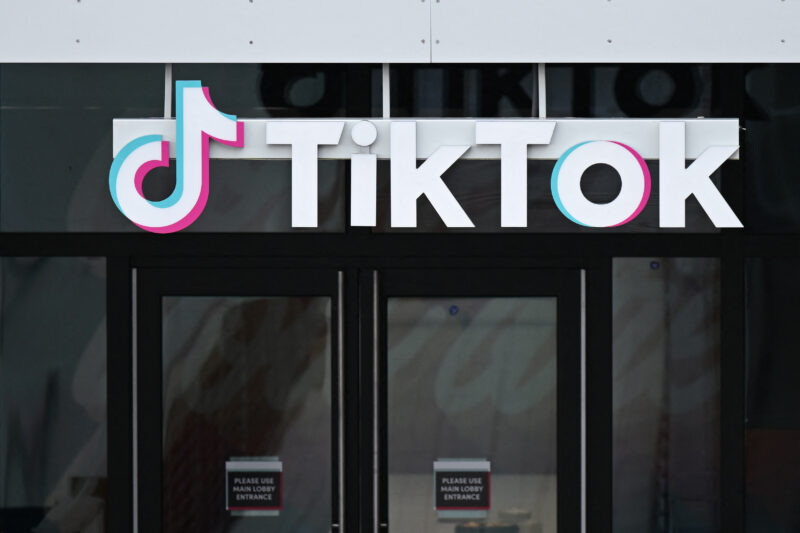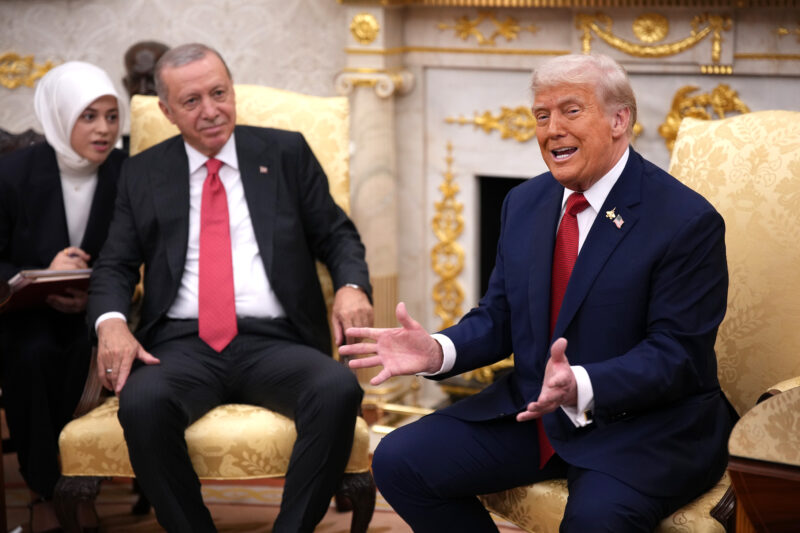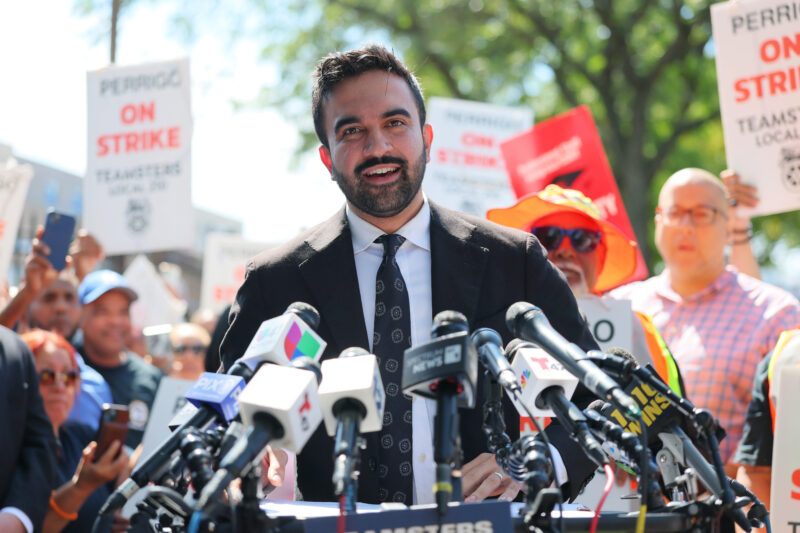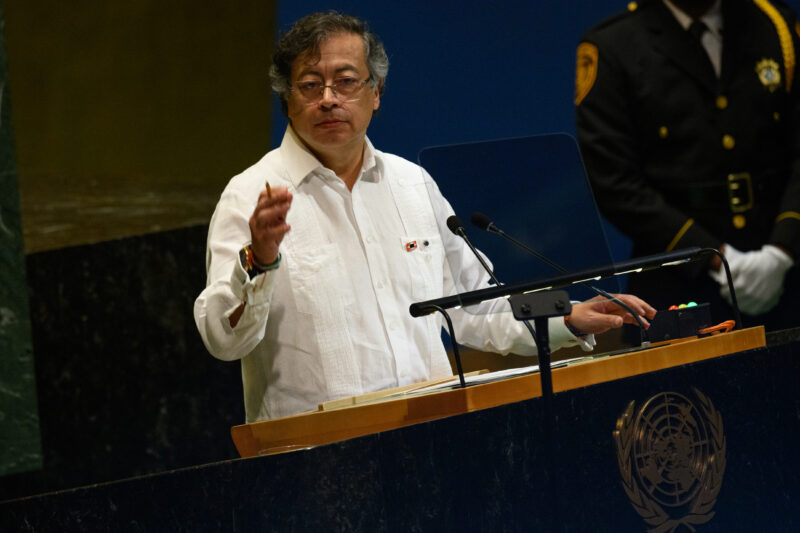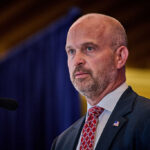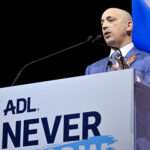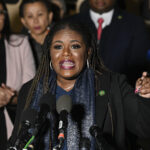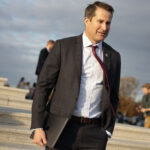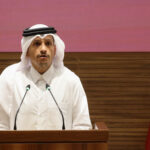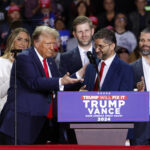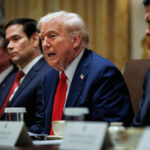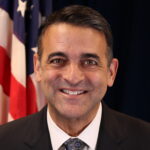Commerce Secretary Howard Lutnick and his wife, Allison, supported the creation of the sukkah through their family foundation
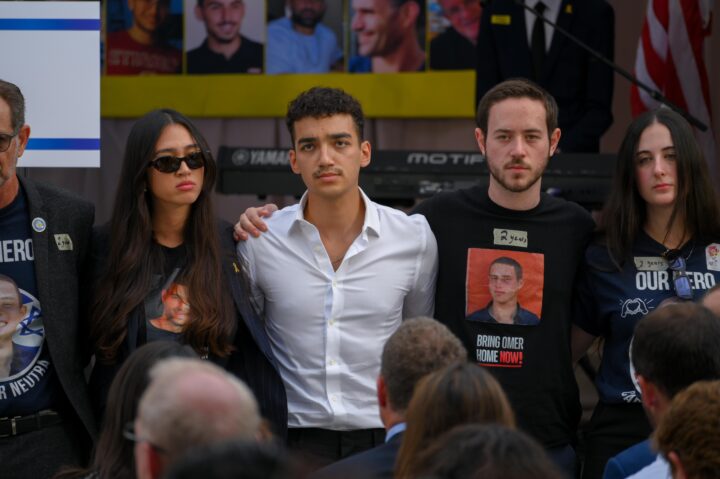
Liri Agami
Former hostages Noa Argamani (left) and Edan Alexander (center) stand with Daniel Neutra, brother of hostage Omer Neutra, and other hostage family members at a memorial event at the Kennedy Center in Washington, D.C., on Oct. 7, 2025.
Oct. 7 bloomed warm and sunny in Washington this year as dozens of Jewish community leaders and bipartisan political officials gathered somberly at a pavilion at the Kennedy Center to mark two years since the Hamas terror attacks in Israel.
A large sukkah, deemed the “Sukkah of Hope,” had a simple message displayed: “Two years in captivity. We can bring them home,” with photos of the 48 people, living and dead, still held captive by Hamas in Gaza. Several former hostages and the family members of those still in Gaza walked up to the stage inside the sukkah, one after the other, all with variations on the same message: Thank you, President Trump, they said. Bring our loved ones home.
“President Trump, we are thankful for what you’ve done, for your determination, for the time and energy you’ve given to this cause,” said Liran Berman, whose twin brothers, Gali and Ziv, remain in Gaza.
“We are really grateful and hopeful. I’m glad that this man, Donald Trump, is behind us,” said Iair Horn, who in February returned to Israel after 498 days in Hamas captivity. His younger brother, Eitan, is still being held in Gaza.
Their appeal to the president’s dealmaking prowess came after the Hostages and Missing Families Forum nominated Trump for a Nobel Peace Prize, an honor he has long coveted. The president sent a letter to the former hostages and the hostage families early Tuesday thanking them for the nomination and expressing his commitment “to returning all the hostages home, and ensuring the total destruction of Hamas so these horrific acts may never be repeated.”
The Sukkah of Hope was supposed to be constructed on the Ellipse, outside the White House. But the government shutdown meant that could not happen. Still, its move to the Kennedy Center did not keep high-level government officials from visiting.
Before the memorial service, several Cabinet secretaries had breakfast with the former hostages and hostage family members. In attendance were Secretary of State Marco Rubio, Commerce Secretary Howard Lutnick, Interior Secretary Doug Burgum, Director of National Intelligence Tulsi Gabbard, Environmental Protection Agency Administrator Lee Zeldin and Treasury Secretary Scott Bessent.
Ronen Neutra, whose son Omer was killed on Oct. 7 and whose body is being held hostage by Hamas, said the Cabinet members sounded optimistic about the possibility of a deal.
“We are hearing from the Cabinet members their optimism that we might be getting closer to a deal,” Neutra said. “But I think what is more important for us, or as important, is to hear the commitment that [we] have been hearing from President Trump, that this has to happen, and this is on his top priority list, and I think it trickles down.”
Lutnick and his wife, Allison, supported the creation of the sukkah through their family foundation.
“Donald Trump is the driving force of peace in this world,” Lutnick said at the memorial event. “The United States of America is together with the hostages and the hostage families. We are part of you, we are with you and we will help get them home.”
In the crowd at the event were Noa Argamani, Edan Alexander, Keith Siegel, Arbel Yehoud, Doron Steinbrecher and Ilana Gritzewsky, all of whom survived Hamas captivity. Alexander, a dual U.S.-Israeli citizen, and the Neutra family met with Trump at the White House on Tuesday afternoon.
At the memorial, several outlined the torture they face and they fears they harbor for loved ones who remain in Gaza.
“There are no words in any language to describe what I went through,” said Yehoud, whose partner, Ariel Cunio, 28, remains in Gaza. “Even as I stand here before you, I’m not really there. A massive part of me is still there, trapped in that darkness, and I will remain there until my Ariel and everyone comes home.”
The Israeli prime minister also expressed an openness for a new relationship with Syria after Trump removed sanctions on the country
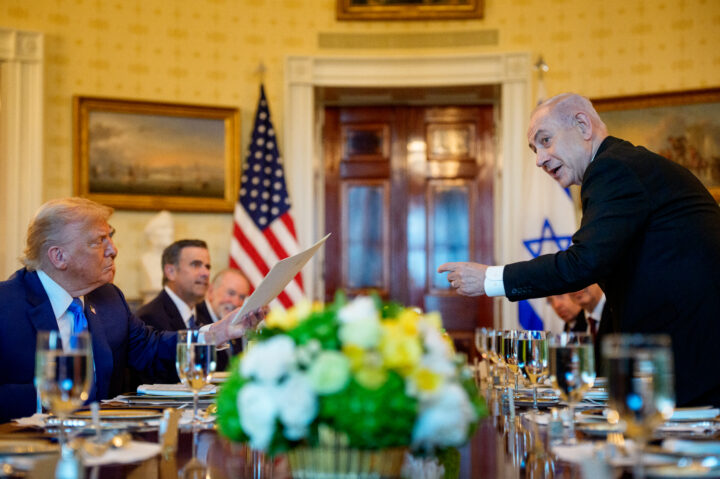
Andrew Harnik/Getty Images
Israeli Prime Minister Benjamin Netanyahu hands off a letter he sent to the Nobel Peace Prize committee to nominate U.S. President Donald Trump for the Nobel Peace Prize during a dinner in the Blue Room of the White House on July 07, 2025 in Washington, DC.
Israeli Prime Minister Benjamin Netanyahu greeted President Donald Trump in the White House Monday evening with effusive warmth, expressing the “appreciation and admiration” of Israel, the Jewish people and “the leadership of the free world” for the U.S.’ recent bombing campaign against Iran’s nuclear facilities.
He also offered Trump an avenue toward his elusive goal: receiving a Nobel Peace Prize.
“He is forging peace as we speak, in one country and one region after the other. So I want to present you, Mr. President, the letter I sent to the Nobel Prize Committee,” Netanyahu announced, saying it would be a “well-deserved” honor for Trump.
“Coming from you in particular, this is very meaningful,” Trump said. “It’s a great honor.”
Similar exchanges of flattery are not an unusual occurrence in the Trump White House. But the warmth and back-slapping present a marked shift even from Netanyahu’s last visit to Washington in April — when he sought to head off U.S. tariffs and urge Trump not to make a nuclear deal with Iran — and a sign of how much has changed in the last three months.
In April, Netanyahu avoided reporters’ questions about Iran. This time, he and Trump took a victory lap together after a 12-day war in which Israel, with key support from the U.S., exacted significant damage on Iran’s nuclear program.
“It was an amazing job,” Trump said of the American bombers’ attacks on three nuclear sites in Iran. “This stopped a lot of fighting. When that happened, it was a whole different ballgame.”
Asked whether he would support additional strikes on Iran, Trump said that he “can’t imagine wanting to do that,” saying that he thinks Iran wants peace.
“They want to meet. They want to work something out. They’re very different now than they were two weeks ago,” Trump said. He ceded the floor to Netanyahu when a reporter asked if the war between Israel and Iran was over.
“I think the partnership between Israel and the United States, the partnership between President Trump and me, produced a historic victory. It’s an incredible victory,” Netanyahu said. He likened Iran to a tumor, noting that doctors must still check in on cancer patients after a tumor has been removed.
“You have to constantly monitor the situation to make sure that there’s no attempt to bring it back,” Netanyahu said. “This has already changed the face of the Middle East, but it’s not over.”
Taking cues from Trump, Netanyahu offered tentative hope for a new relationship with Syria. Israeli leaders, including Netanyahu, have been cautious when considering how to deal with Ahmed al-Sharaa, the new president of Syria. Trump, meanwhile, has expressed optimism about al-Sharaa and moved to remove sanctions on Syria. The Trump administration on Monday removed Hayat Tahrir al-Sham, a group previously led by al-Sharaa, from its list of foreign terrorist organizations.
But on Monday, Netanyahu said there is an “opportunity to explore” with the new government in Israel’s northern neighbor — and gave Trump some credit for it.
“I think this presents opportunities for stability, for security and eventually for peace,” said Netanyahu. “I think that opportunity has been opened by the president and by the changed security situation, which we brought about with the collapse of the Assad regime.”
Trump and Netanyahu did not share much publicly about the recent reports suggesting a ceasefire deal between Israel and Hamas is under consideration.
When asked if he thinks there can be a two-state solution, Trump again handed the mic to Netanyahu.
“You have the greatest man in the world to answer that age-old question,” said Trump. Netanyahu said no.
“We’ll work out a peace with our Palestinian neighbors, those who don’t want to destroy us, and we’ll work out a peace in which our security, the sovereign power of security, always remains in our hands,” said Netanyahu. “People will say, ‘It’s not a complete state, it’s not a state, it’s not that’ — we don’t care. We vow never again.”




